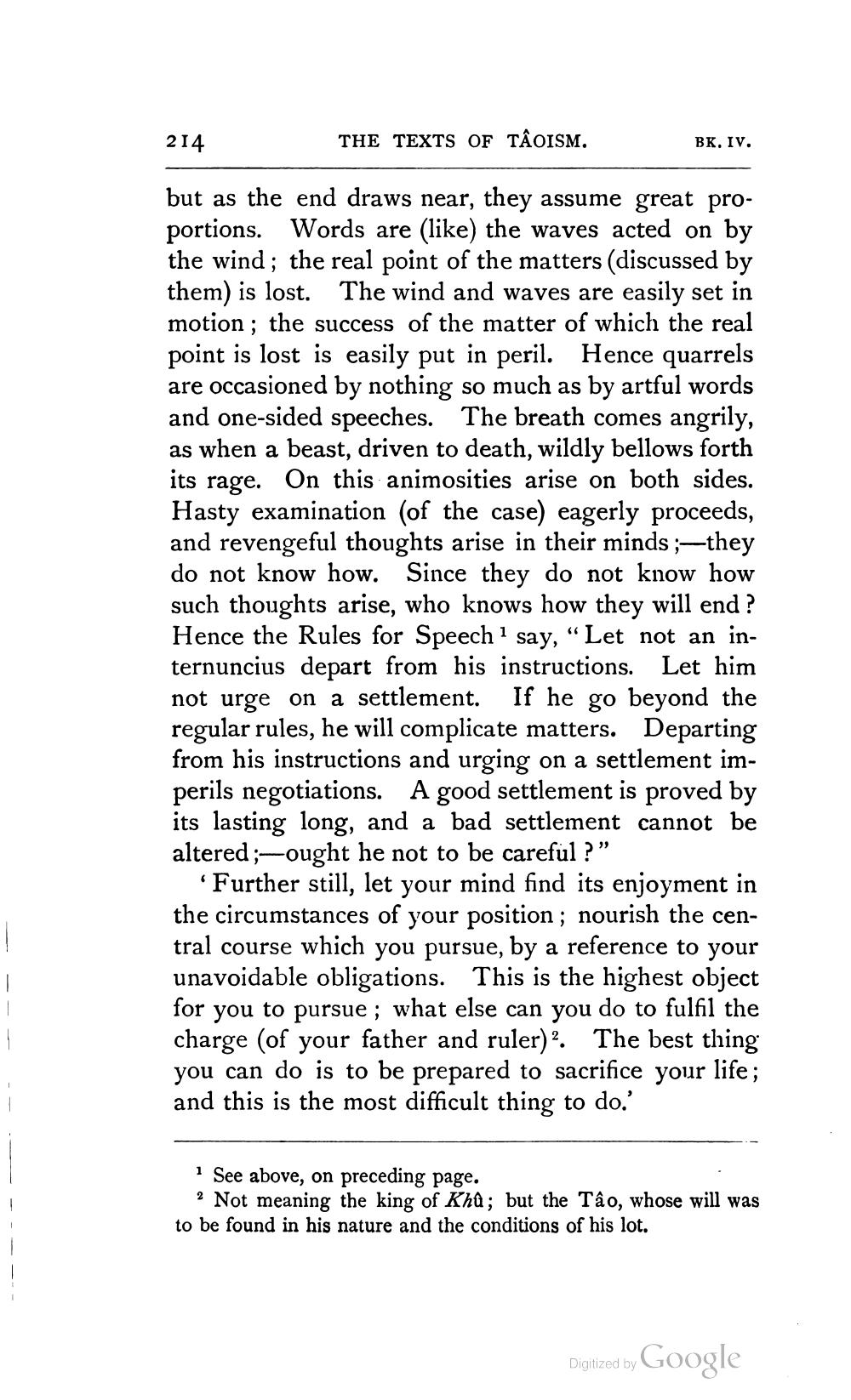________________
214
THE TEXTS OF TÂOISM.
BK. IV.
but as the end draws near, they assume great proportions. Words are (like) the waves acted on by the wind; the real point of the matters (discussed by them) is lost. The wind and waves are easily set in motion; the success of the matter of which the real point is lost is easily put in peril. Hence quarrels are occasioned by nothing so much as by artful words and one-sided speeches. The breath comes angrily, as when a beast, driven to death, wildly bellows forth its rage. On this animosities arise on both sides. Hasty examination (of the case) eagerly proceeds, and revengeful thoughts arise in their minds ;—they do not know how. Since they do not know how such thoughts arise, who knows how they will end ? Hence the Rules for Speech 1 say, “Let not an internuncius depart from his instructions. Let him not urge on a settlement. If he go beyond the regular rules, he will complicate matters. Departing from his instructions and urging on a settlement imperils negotiations. A good settlement is proved by its lasting long, and a bad settlement cannot be altered ;-ought he not to be careful ?”
Further still, let your mind find its enjoyment in the circumstances of your position ; nourish the central course which you pursue, by a reference to your unavoidable obligations. This is the highest object for you to pursue ; what else can you do to fulfil the charge (of your father and ruler)?. The best thing you can do is to be prepared to sacrifice your life; and this is the most difficult thing to do.'
See above, on preceding page. ? Not meaning the king of Khû; but the Tâo, whose will was to be found in his nature and the conditions of his lot.
Digitized by Google




